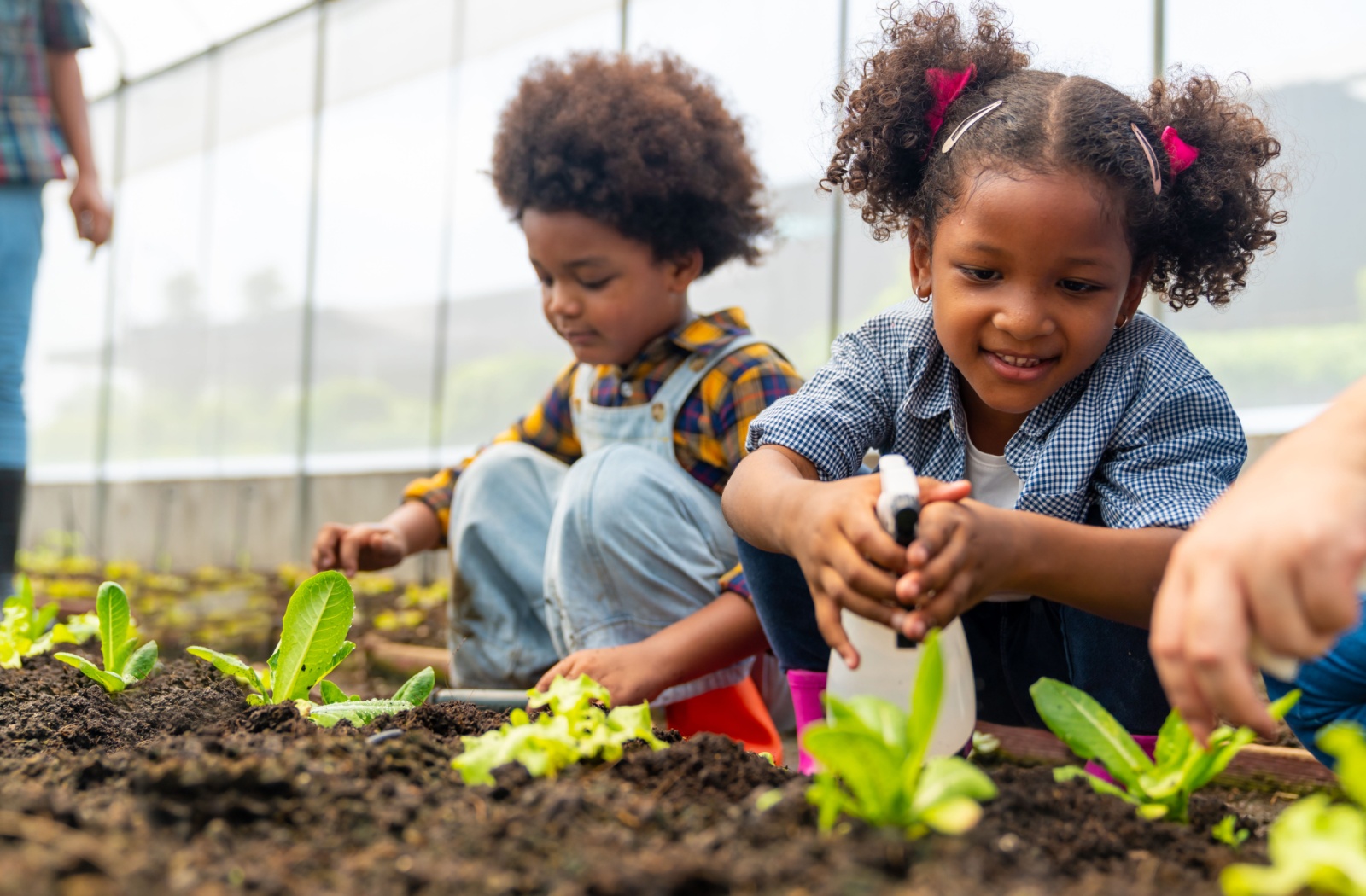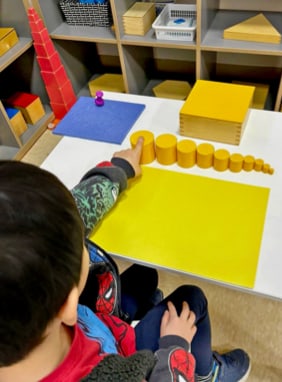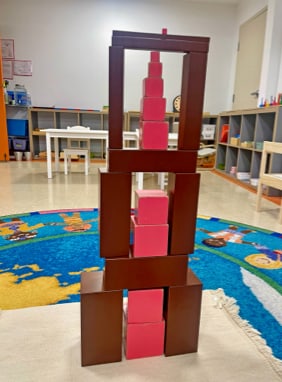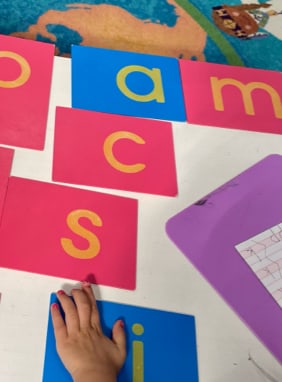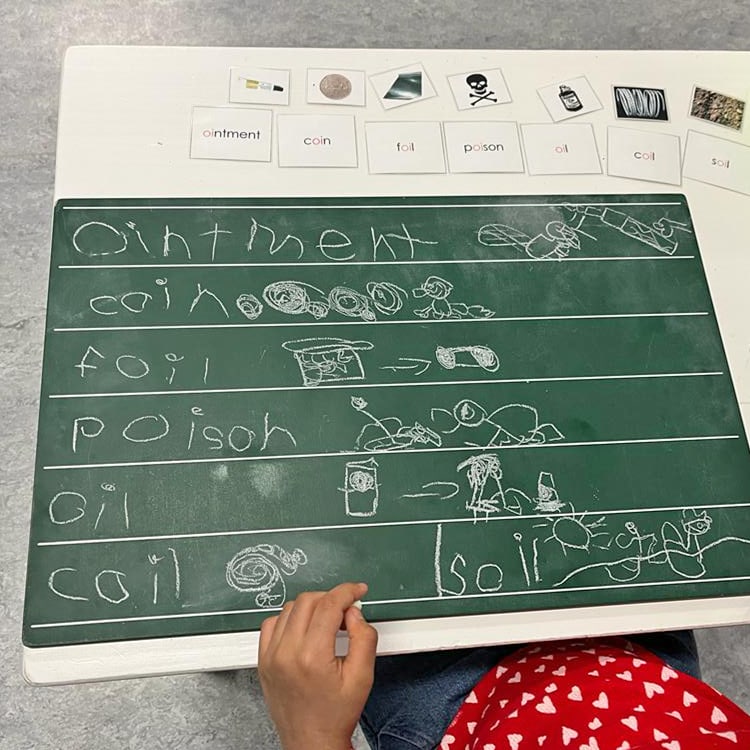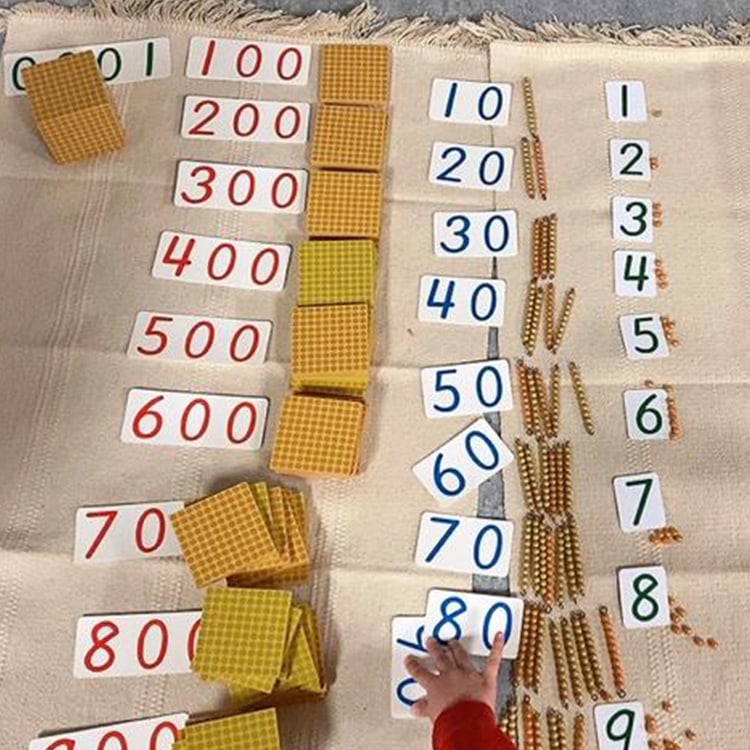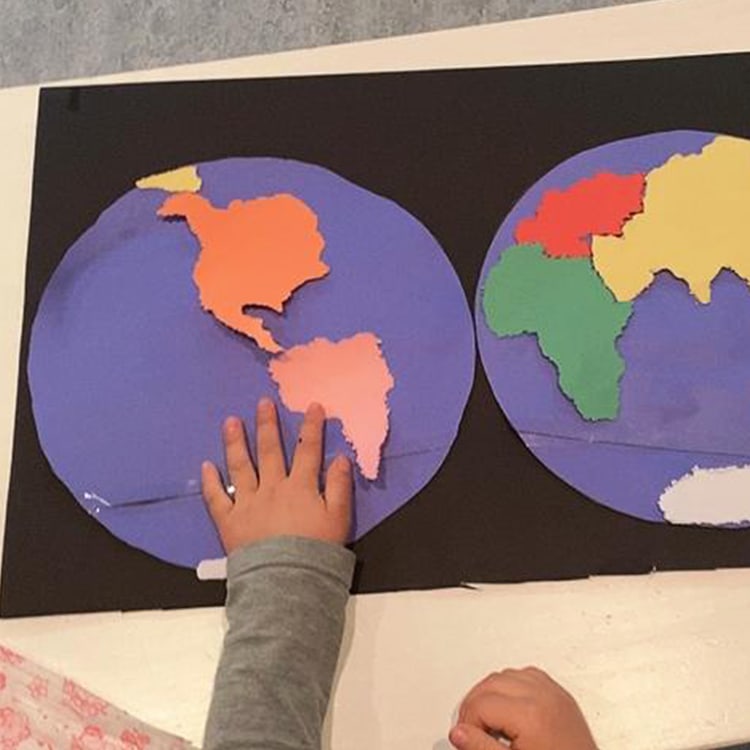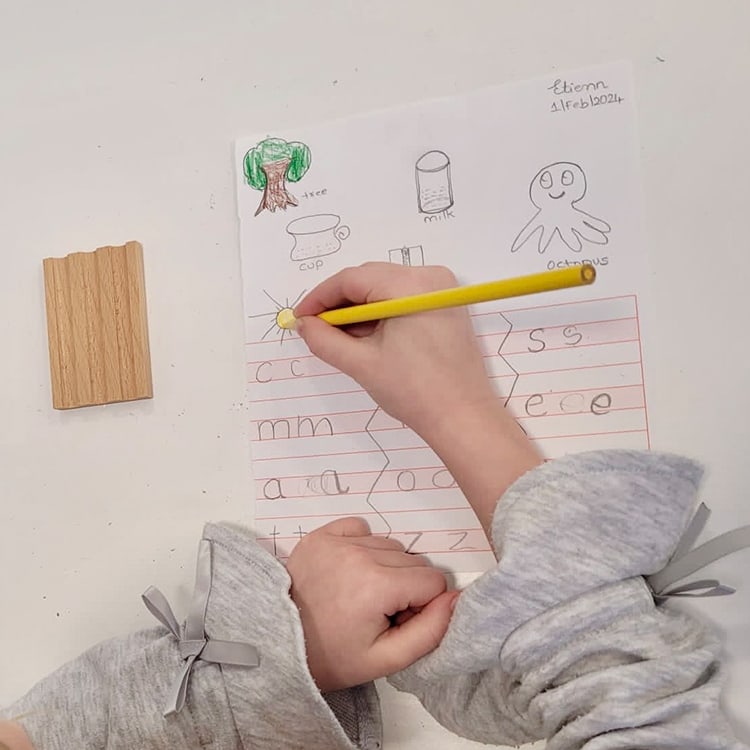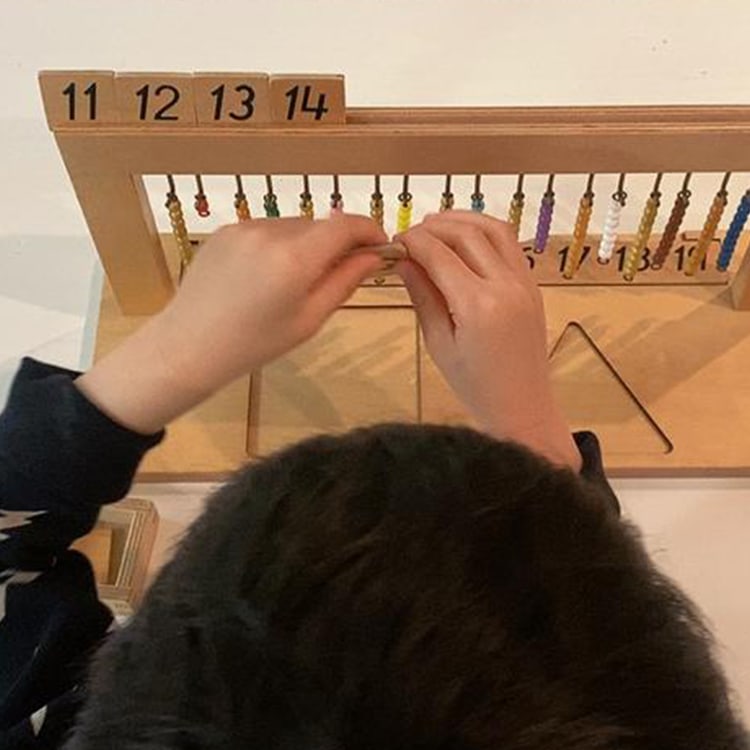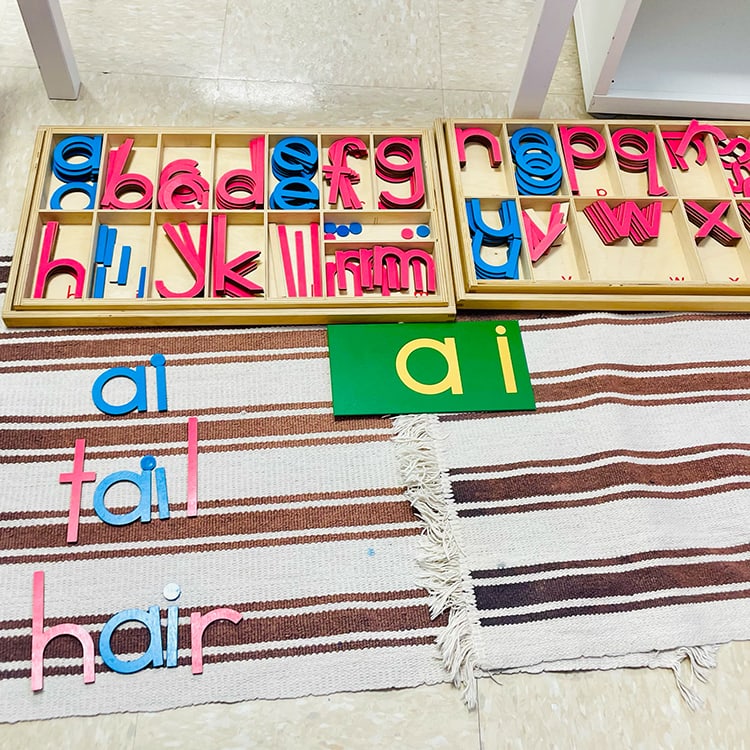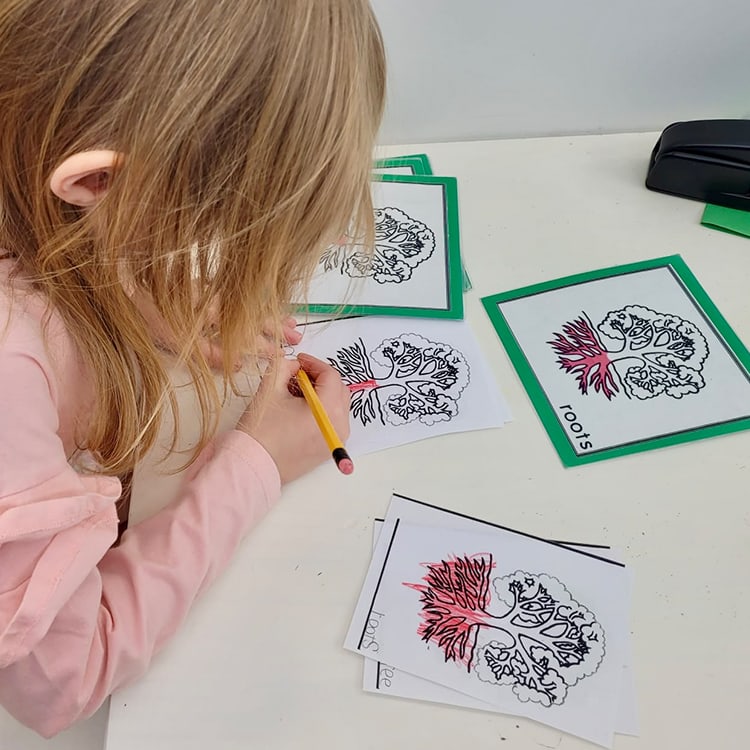In the age of digital screens, there remain countless other ways to inspire curiosity without them. Gardening, cooking, nature scavenger hunts, art projects, and building with blocks all provide rich opportunities for children to learn and explore. These types of hands-on, real-world experiences strengthen creativity, problem-solving skills, and independence while encouraging healthy cognitive, social, and emotional growth.
Activities for Natural & Independent Learning for Children
Nature-Based Exploration
All humans possess a deep connection to the natural world that can provide endless learning opportunities for children. Here are a few methods to do it:
- Outdoor scavenger hunts: Children can collect leaves, rocks, or flowers while observing differences in texture, colour, and shape.
- Gardening projects: Children can plant seeds, water seedlings, and observe growth cycles while developing responsibility and understanding cause-and-effect relationships.
- Weather observations: Provide simple tools like magnifying glasses or measuring cups to collect rainwater, and encourage children to draw or describe what they notice about clouds, wind patterns, or seasonal changes.
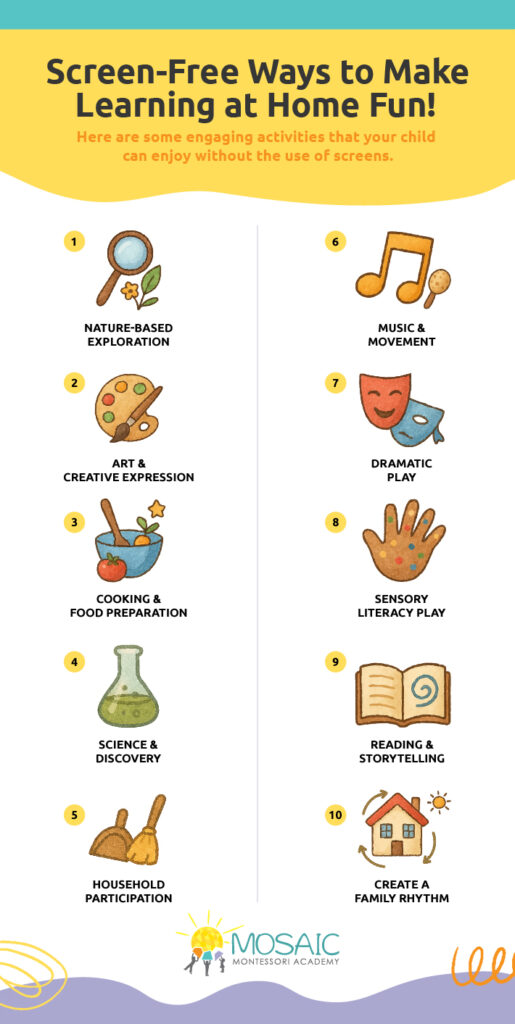
Art & Creative Expression
Artistic activities engage multiple senses while allowing children to express their inner thoughts and emotions. Here are a few ways:
- Art stations: Set up simple art stations with natural materials like clay, watercolours, or collage supplies. Let them engage in unstructured play, but keep cleanup materials nearby!
- Music and movement: Children can create simple instruments from household items, learn rhythmic patterns, or engage in dance that incorporates storytelling or imaginative play. While adult-sized instruments can be expensive and complicated, a ukulele or wood whistle is easy to use and learn.
- Dramatic play: Simple costume boxes or puppet-making activities can transform living rooms into stages for creative expression. Try taking turns being the audience, or perform together!
Cooking & Food Preparation
The kitchen offers endless opportunities for hands-on learning, combining practical life skills with sensory-rich experiences. Here are some engaging, age-appropriate cooking activities for children:
- Washing vegetables: Encourages attention to detail and builds fine motor skills while preparing ingredients.
- Mixing ingredients: Teaches coordination, following steps, and understanding how separate components combine.
- Helping to prepare snacks: Fosters independence and confidence through simple, manageable tasks.
- Baking projects: Demonstrates transformation by turning ingredients like flour and eggs into bread or cookies, while teaching patience and the satisfaction of contributing to family meals.
- Sorting fruits and vegetables: Strengthens categorization skills by grouping by colour, shape, or size.
Cooking together supports not only healthy eating habits but also a child’s cognitive, social, and emotional development, making it a valuable alternative to screen-based activities.
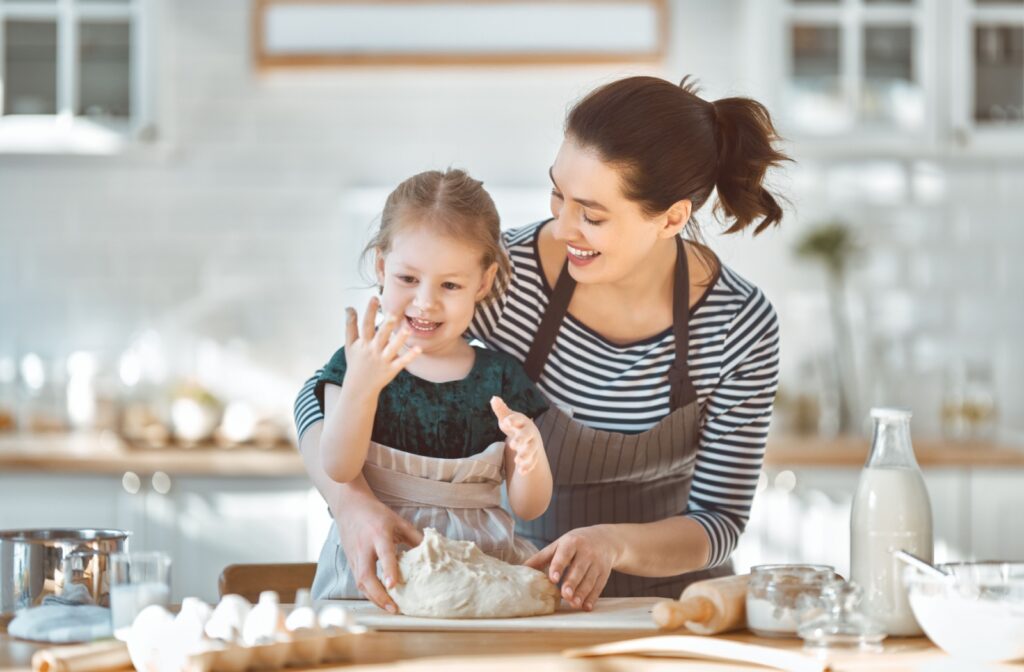
Words & Storytelling
Rich language experiences typically occur through storytelling, poetry, and conversation rather than passive screen consumption. Reading aloud remains one of the most powerful activities for developing vocabulary, comprehension, and imagination.
Letter recognition and writing preparation can happen through sensory activities like tracing letters in sand, forming letters with clay, or finding letter shapes in everyday objects. These multi-sensory approaches support different learning styles and make abstract symbols meaningful.
Encouraging children to tell their own stories, whether through pictures, talking to adults, or dramatic play, develops narrative thinking and communication skills that support both academic learning and social relationships.
Science & Discovery
Using household materials for science activities can spark curiosity and help children understand basic scientific principles. Examples include:
- Mixing colours: Learn how primary colours combine to create new ones.
- Observing objects that sink or float: Explore concepts of density and buoyancy.
- Watching ice melt: See how temperature affects the state of matter.
Observation skills grow when children keep nature journals, draw their discoveries, or talk about their findings during experiments, turning play into meaningful learning.
Household Participation
Involving children in household tasks helps them build skills and feel like valued members of the family. Age-appropriate chores such as sorting socks, dusting, or organizing books teach responsibility, improve motor skills, and develop focus.
These activities should feel like opportunities, not punishments, giving children a chance to grow more independent. Helping organize and care for their belongings teaches respect for their environment, while simple systems for storing toys or clothes build categorization skills and support healthy routines.
The Importance of Building Family Rhythm
Shifting away from too much screen time takes patience and consistency. Start small by replacing one screen session each day with a fun, engaging alternative to avoid resistance. Involve children in planning activities and preparing materials. When they help make choices, they are more invested and motivated to participate.
Create predictable daily rhythms that include both active and quiet time. Routines provide a sense of security while still offering variety, and a healthy balance between independent play and family activities supports different developmental needs.
Embracing Learning Through Experience
Creating meaningful alternatives to screen time means rethinking how childhood and learning are approached. Children do not need constant entertainment; they need opportunities to explore, create, and discover at their own pace. When adults provide rich environments and step back to observe, children naturally show their ability for deep focus and independent learning.
At Mosaic Montessori Academy, we help children experience the full range of learning opportunities that come from hands-on exploration.
Contact us today to learn more about how our Montessori approach supports balanced, screen-free learning both in the classroom and at home.


